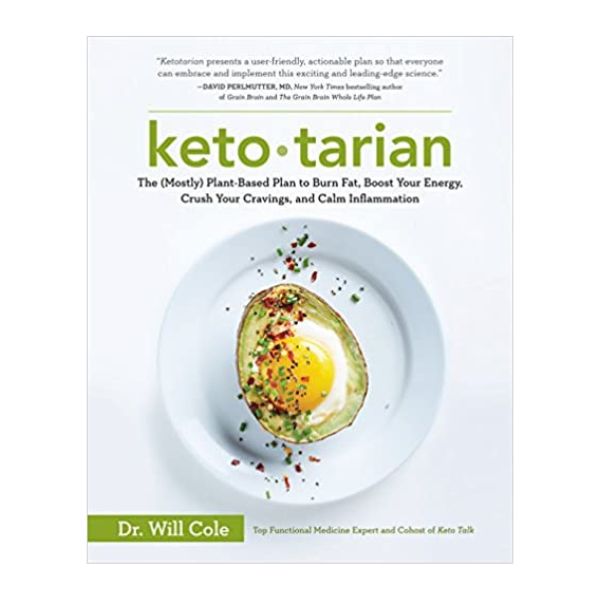The solution? Look for substitutions.
Due to the rise of dairy allergies, there are many delicious dairy alternatives available in any grocery store, like milk made from nuts and seeds and coconut to creamy nut cheeses made from almonds or cashews. Nut milks and nut cheeses are not only great sources of fat and protein, but they come in many varieties, such as mozzarella, cream cheese, “Parmesan,” and more. Many brands taste just as delicious as their counterparts, and they are also easy to make at home. And if you are a butter lover, try grass-fed ghee—it is butter oil with the casein removed. It’s just pure grass-fed dairy fat.
Keto Mistake 3: When people ditch vegetables
From Dr. Will Cole’s blog about mistakes made on a keto diet:
Just because vegetables contain some carbs is no reason to shun them from your diet. One of the most common misunderstandings I see among people on a ketogenic diet is that they need to greatly limit or avoid vegetables, but this leaves many people lacking in necessary phytonutrients, enzymes, fiber, and resistant starches that provide food for a healthy gut. Research has shown (1) that high-fat diets that lack fiber from vegetables can actually increase inflammation.
Also, those avoiding veggies may be more likely to experience a loss of electrolytes common with a ketogenic diet because they are missing out on natural vegetable sources of magnesium, calcium, and potassium. The problem with processed electrolyte replacement drinks is that they can also contain unnecessary sweeteners and additives.
The solution? Fall in love with the produce section.
Sure, there are definitely some carb-heavy vegetables that you will probably want to limit in order to keep your daily carb count low enough for ketosis, but many amazing vegetables are low-carb enough for keto. In fact, my book Ketotarian is all about how to do a ketogenic diet and still eat a 100 percent plant-based diet. In my book, you can find the most nutrient-dense vegetable options for enjoying them while achieving ketosis—some of my favorites also have a significant amount of electrolytes, including:
-
-
- Avocado: 1,067 mg potassium / 58 mg magnesium per 1 whole avocado
- Kale: 329 mg potassium / 31 mg magnesium per 1 cup of kale
- Spinach: 839 mg potassium / 157 mg magnesium per 1 cup of spinach
- Swiss chard: 136 mg potassium / 29 mg magnesium per 1 cup of Swiss chard
Keto Mistake 4: When people default to processed meats
From Dr. Will Cole’s blog about mistakes made on a keto diet:
Fatty meat is another conventional ketogenic diet staple. While this may not seem like “diet food,” in addition to its fat content, animal protein sources are loaded with other beneficial nutrients such as B vitamins, which are essential for healthy detox and inflammation pathways. But many studies have shown (2) that diets high in non-organic, grain-fed conventional sources of animal protein such as corn-fed industrial feedlot beef or processed lunch meats, bacon, or sausage, have been linked to cancer and other diseases.
The solution? Go organic… or plant-based.
If meat is your jam, look for grass-fed organic cuts of meat and limit the amount of processed meats you eat. Bacon at every meal is no way to tamp down inflammation! Instead, go for wild-caught fish, which is a clean, nutrient-dense animal source of both fat and protein that most people overlook in favor of red meat.
Personally, I’m a big fan of the ketogenic diet, but I am also a big fan of going predominantly plant-centric when I do keto. Not only is it more affordable, but this style of eating takes advantage of the health benefits of both conventional ketogenic diets and plant-based diets. It’s a two-for-one for your health!
We’ve teamed up with Dr. Cole to offer a ketotarian meal program – a plant-based version of the keto diet, so you can reap the disease-fighting benefits of vegetables while keeping your body in a ketogenic state. Learn more about our ketotarian meal program and transition your body from a sugar burner to a fat burner in no time.








